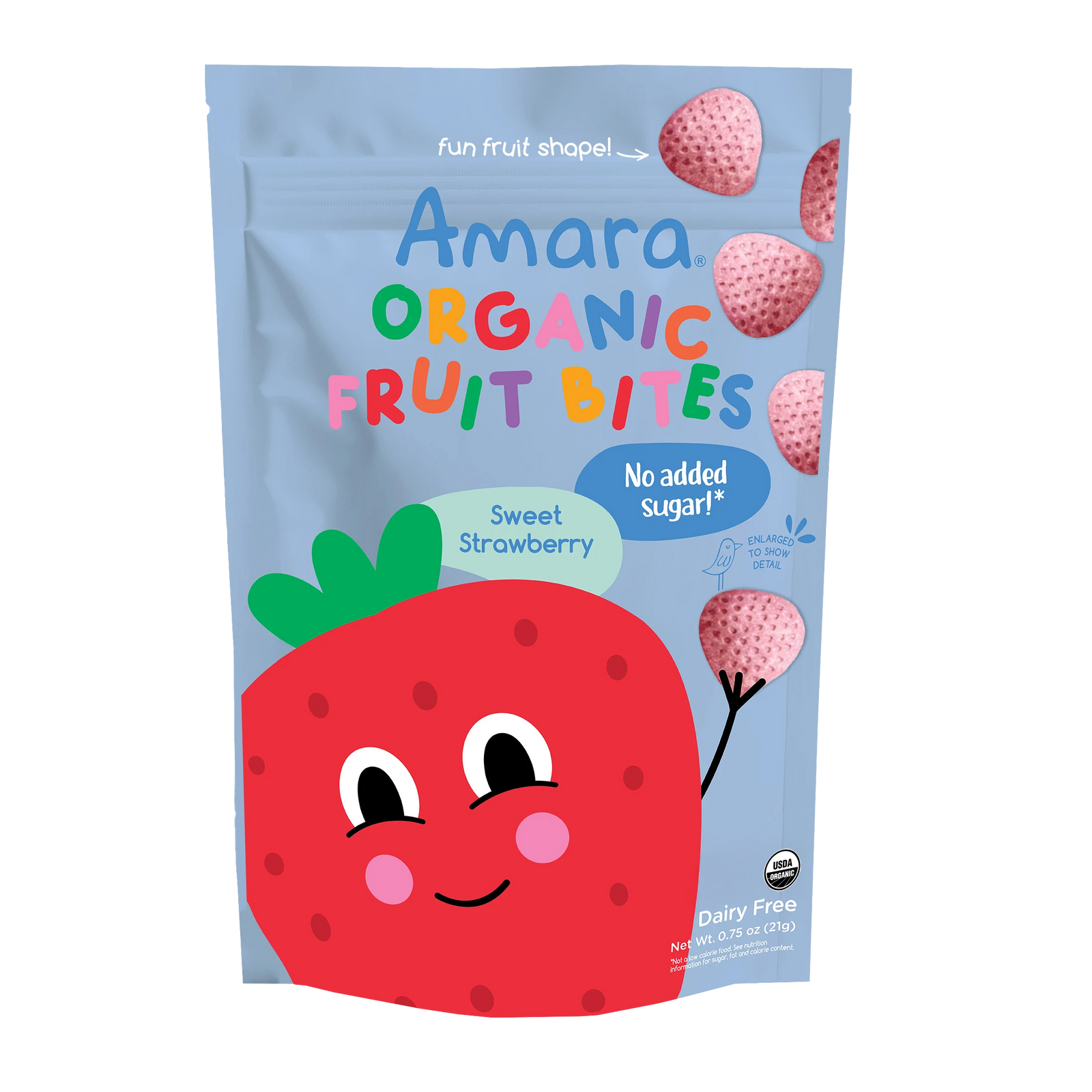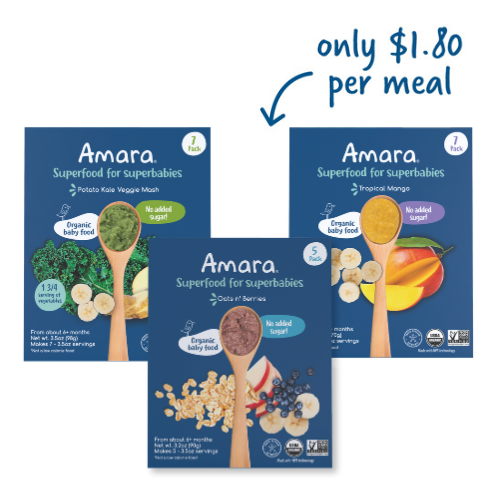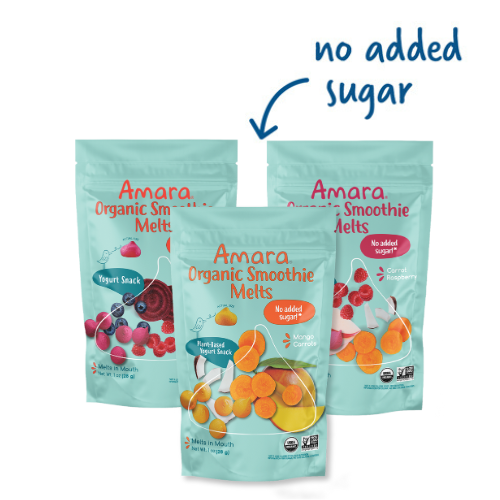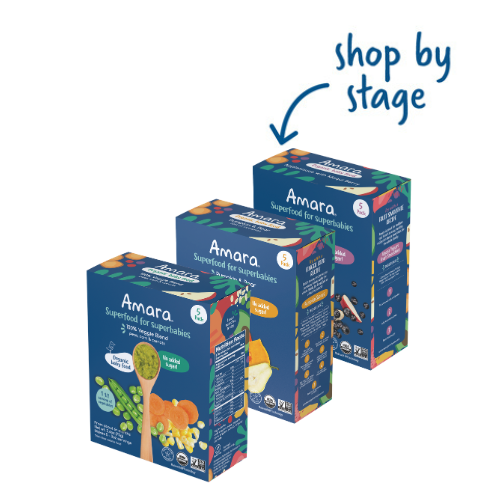
Raising a Vegetarian? What you Need to Know
A Guide to Plant-Based Family Eating
Vegetarian and plant-forward diets are becoming increasingly popular in the United States right now, for all sorts of different reasons — ranging from health benefits to environmentalism and religious considerations to animal rights. In fact, vegetarianism is more common now than ever before, with 6% of adults adhering to some version of a vegetarian diet and 3% identifying as vegan.
Although many families may worry about raising children on a vegetarian diet, it’s completely safe, healthy, and nourishing — when it’s done right. Numerous professional associations — including the American Dietetic Association, the American Academy of Pediatrics, Canada’s Food Guide, and Dietitians of Canada — all support vegetarian diets for children and teens. And for good reason, because by this point we have a wealth of very strong evidence showing that children who follow well-balanced plant-based diets grow and thrive well.
What is a plant-based diet?
These days, you may be hearing more about “plant-based eating” than strict vegetarianism — and we’re big fans of the turn in wording because it actually captures quite a lot! Perhaps more than anything else, this subtle shift in labeling conveys that our diets don’t have to be black-or-white. Indeed, our choices about what we eataren’t black-and-white, andopting to favor vegetarian eating doesn’t have to be all-or-nothing.
There is no uniform definition for plant-based eating, but generally speaking we might say that it leans heavily on foods that come from plants (go figure) and includes minimal foods derived from animals. Thus, healthy plant-based diets feature vegetables, whole grains, legumes, nuts, seeds, and fruits, while minimizing (or eliminating) foods such as meat, fish, and dairy.
|
Confused about different vegetarian labels? Here’s the run-down: People who self-identify asvegetarians generally don’t consume any meat, fish, or poultry… but there are different “sub-groups,” if you will:
Vegans do not eat any foods that derive from animals. Plant-based eaters may also identify as flexitarian: someone who takes a flexible approach to vegetarianism — they may be “mostly” vegetarian but consume animal products on occasion. |
 |
What are the advantages of a plant-based diet?
There are numerous benefits associated with following a plant-based lifestyle, and they hold true across all age groups, including pregnancy, lactation, infancy, childhood, the teenage years, and adulthood. Indeed, there is an abundance of scientific data proving that plant-based eating has beneficial effects on human health and environmental health. Let’s take a quick look:
Health benefits associated with plant-based eating:
Because of their plant-rich diets, vegetarians and vegans tend to have higher intakes of “good” things like fiber, micronutrients, antioxidants, and phytochemicals, and a lower intake of undesirable nutritional components, such as saturated fat (and unnecessary calories!). As a result, they generally have less inflammation, lower cholesterol levels (both overall and LDL), and their bodies respond more effectively to glucose.
Plant-based eaters have a lower risk of developing numerous chronic health conditions, including heart disease, metabolic syndrome, type 2 diabetes, hypertension, certain cancers (colon, breast, and prostate, especially), and obesity. Among older people, plant-based eating is also associated with a lower risk of frailty, improved mental clarity, and better physical functioning. Plant-based eaters have a healthier (read: more diverse) gut microbiome — something we’re only just beginning to learn more about — and also may have a lower risk of developing severe illness from Covid.
In recent years, studies have also shown that people who follow a healthy plant-based diet may live longer. In one project, for example, plant-based eating was associated with an 18-25% reduction in death. A recent study showed that switching to a plant-based diet could add 10-13 years to your life — and the benefits were greatest among younger participants.
Lastly, many people also find that when they start eating plant-based,they just feel better.It’s true! Introducing your children to plant-based eating is actually a wonderful gift!
Environmental benefits associated with plant-based eating:
Plant-based diets are more environmentally sustainable than diets rich in animal products because producing plant foods demands fewer natural resources and also causes less environmental damage. Livestock farming accounts for nearly 15% of global greenhouse gas emissions — and anything we can do to cut down on this is a help. [See here for more about the connection between diet and the environment.] Indeed, transitioning to a plant-based diet may be the most impactful way for us as individuals to combat climate change.
Are there any nutritional gaps or concerns associated with plant-based eating?
In the modern United States, nutritional excess is a much more common problem than nutritional deprivation or deficiency. Many Americans are consuming too many calories, too much sugar, and too much saturated fat — and not enough vegetables, fruits, legumes, and whole grains. (Thanks, processed foods…)
Did you know? According to the CDC, only 10-12% of Americans consume the daily recommended amounts of fruits and vegetables.
Technically, any diet that restricts food groups is subject to potential shortcomings, and plant-based eating is no different, butwell-planned, well-balanced plant-based eating offers all the nutrients your body needs. Key words here arewell-plannedandwell-balanced, folks. It’s true that you can obtain all the protein, fat, carbohydrates, calories, vitamins, and minerals you need from a plant-based diet, but it does require a bit more mindfulness. Vegetarians need to make sure they’re getting enough iron, iodine, vitamin D, zinc, and omega-3 fatty acids. Vegans need to watch out for these same nutrients plus vitamin B12 (which does not exist in the plant world), calcium, and riboflavin.
Thus, it’s important to take a careful, balanced approach toward plant-based eating.Diversity andplanning are your friends here — opting for a variety of meals and snacks that incorporate a mix of protein, vegetables/fruits, and whole grains or legumes can help make sure your body is getting everything it needs. When done well, vegetarian and vegan diets tend to be rich in a wide variety of wholesome foods: grains, legumes (including soy and soy derivatives), vegetables, fruits, nuts and seeds, healthy vegetable fats, and herbs and spices. Plant-based diets grounded in these staples can provide well for children and adolescents. (Though, especially with kids, it’s easier to cover all the bases with an ovo-lacto vegetarian diet.)
Here are a few things to be aware of when introducing a plant-based diet to your family:
-
Calorie intake:Although plant-based foods and dishes tend to be naturally low in calories, children can get all the calories they need from plants. If you’re worried, you could make sure to offer your children high-density plant foods such as nuts/nut butters or soy products.
-
Protein:Although we tend to think of meat as the king of protein, plants can be a wonderful source of protein! Yes, research verifies that a variety of plant foods can provide all the essential amino acids you (and your children!) need. (Also, protein deficiency is quite rare in the industrialized world…) The best plant protein sources are legumes (beans and lentils), cereals, nuts and seeds, and soy products (i.e., soy milk, tofu, tempeh). [For more on plant-based protein combos, read here!]
-
Iron:Vegetarians and vegans often have lower iron levels than nonvegetarians, but they aren’t at any higher risk for “problematically low” iron levels (aka anemia). Still, most experts think that vegetarians probably require more iron than nonvegetarians because iron derived from plants,nonheme iron, is less bioavailable (meaning, it’s more difficult for the body to break down and utilize) than iron derived from animals,heme iron.
-
Calcium:Children who don’t consume dairy products can obtain calcium from other sources, such as green leafy vegetables, cruciferous veggies, sesame seeds, almonds, fortified plant milks (check that there’s no added sugar!) and yogurts, soy, tempeh, and… dried figs. (How exciting, lol.)
-
Vitamin D: Natural sources of vitamin D include fatty fish, egg yolks, and the SUN. (Come on, summer!) Vegan children would benefit from vitamin-D-fortified products (infant formula and milks), and may need a supplement.
- Vitamin B12: This is the kicker, folks — because vitamin B12 simply does not exist in plant foods. If your family consumes dairy and/or eggs regularly, those will help meet your needs. Vegans, however, are at risk for B12 deficiency and should either take a supplement or make sure to consume fortified food products (namely, formula and cereals). According to nutritionists, all strictly vegan babies, children, and teens should have their B12 levels measured.
Speaking of which,what about babies?Babies obtain virtually all of the protein, vitamins, and minerals they need from breastmilk and/or formula (until at least ~7 months of age, when they are more regularly consuming complementary solid foods). Babies are, however, at risk for iron deficiency, which is why the American Academy of Pediatrics recommends iron supplements for babies. [For more about iron and babies, read here.] The AAP also recommends vitamin D supplementation for all breastfed infants, and breastfed babies whose mothers are vegan may need an additional source of vitamin B12 — if this is you, talk to your doctor.
If you are planning to raise your baby vegan, experts recommend working with a nutrition counselor, as supplementation will likely be needed (particularly early on).
 |
If you have any concerns about plant-based eating, definitely have a conversation with a nutritionist to review your family’s diet, and you may want to consider speaking with your pediatrician about supplementing, too… at the end of the day, there’s always multivitamins, hah! Keep in mind, though — multivitamins may be a useful “safety net” in certain situations, but they are no replacement for real nutrients from real foods! |
Perhaps even more than worrying about specific, isolated nutritional components, it’s important to bear in mind that it’s entirely possible to “do” plant-based eating in an unhealthy way. The benefits of plant-based eating are associated withdiverse, whole-foods plant-based diets. There is plenty of processed junk food that qualifies as plant-based (technically Oreos and Doritos are vegan…), and replacing animal foods with highly processed foods or foods containing added sugars — plant-based or not — simply isn’t going to deliver the same health benefits as transitioning to a plant-based diet that focuses onreal, whole foods (namely, legumes, whole grains, vegetables, fruits, nuts, and seeds).
Which brings us to…
Tips for Trending Plant-Based
Taking the first step toward eating plant-based can seem overwhelming, but allow us to let you in on a little secret: it doesn’t actually have to be that hard! You don’t have to commit full-time or swear off animal foods forever, becauseeating plant-based is not an all-or-nothing proposition. (Hence the name,plant-based.)
Here are some ideas for dipping your toe in the water:
-
Just eat more plants.Instead of focusing on cutting out animal products, start off by simply adding in more plant-based foods and dishes to your diet. Most people don’t get the recommended 5 servings of fruits and vegetables daily, so aiming to hit that target and work in more whole grains, legumes, nuts and seeds is a fantastic launching point (and most people say that doing just this inevitably cuts back on animal food consumption).
-
Set some external limits to reduce excess animal food consumption.Try on your own brand of semi-vegetarianism by picking times or days to limit animal foods. Mark Bittman famously decided to be vegan before 6pm, but not after (though nutritionists would tell you you’d better off to eat meat earlier in the day rather than later, for digestive purposes!); I have friends who eat vegetarian on the weekdays but not the weekends, or always make vegetarian dinners on Thursday (or whenever). Pick something that’sdoable for you, and give it a whirl.
-
Cut out one animal food/product at a time. Some people have success eliminating animal foods in categorical order (i.e., first I’ll try giving up pig meat, then cow’s meat, then milk, etc.). This has the benefit of being manageable and progressive while still being impactful. Experts say it’s best to start with processed meat products (sausage, pepperoni, etc.) and work from there, but you can pick anything that works for you — I know families who have done this starting with “the hardest thing to give up” (CHEESE! hah) and others who’ve opted to begin with something easier (chicken?) and keep their staples (cream in their morning coffee) steady.
-
Make plants the main entree. I know many people who treat animal foods more as side dishes than main dishes, which inevitably puts plant foods in the spotlight and leads to smaller servings of animal-based products.
Remember, healthy whole-foods, plant-based eating should incorporate a diverse variety of fresh foods, and ideally relies heavily on:
-
Dark, leafy green vegetables
-
Vegetables
-
Fruits
-
Legumes
-
Tofu and soy products
-
Seeds and nuts (and butters)
-
Whole grains
-
Healthy fats (found in nuts and nut butters and vegetable oils such as extra virgin olive oil, flaxseed oil, or canola oil)
Here are five plant-based food swaps:
-
Instead of cow’s milk, try fortified soy, oat, or almond milk.
-
Instead of an omelet with sausage & cheese, try scrambling tofu with mushrooms and spinach.
-
Instead of parmesan cheese, try nutritional yeast — it’s a powerhouse little flakey seasoning that has a cheesy/nutty flavor and tons of vitamin B12.
-
Instead of a hamburger, try a black bean veggie burger. [should we link to a recipe?]
-
Instead of yogurt, try chia seed pudding: just let chia seeds soak overnight in coconut milk — you can add in flavoring like vanilla extract, berries, or a drizzle of honey to spice it up!
*In general, some fabulous meat “replacements” are soy products (tofu, seitan, tempeh), legumes, and jackfruit (yes, really!). Many friends also like to start off by removing meat from dishes they already know and love, such as chilis/soups, lasagna/pasta recipes, fajitas, flatbreads, omelets, etc. — all of these dishes can easily be prepared without meat, and many people find they still taste just as great.
And here are five EASY and healthy plant-based snack ideas:
-
Fruit, vegetables, &/or whole grain crackers spread with nut butter or hummus
-
Berries with nuts and/or seeds
-
Avocado smeared on whole grain bread
-
Steel cut oatmeal topped with berries and nuts
-
Amara toddler yogurt melts
At Amara, we know how important the first years of life are for establishing healthful eating habits and taste preferences, and it’s our mission to help every parent and family lay the foundation for a lifetime of healthy eating.All of our organic baby foods and toddler snacks are plant-based, contain no added sugar (never!), and come with the same flavor and freshness of homemade. Our nutrient protection technology (NPT) locks in all the good stuff — nutrients, tastes, and textures — without fundamentally changing foods, so you always know you’re feeding your family the good stuff!









Leave A Comment